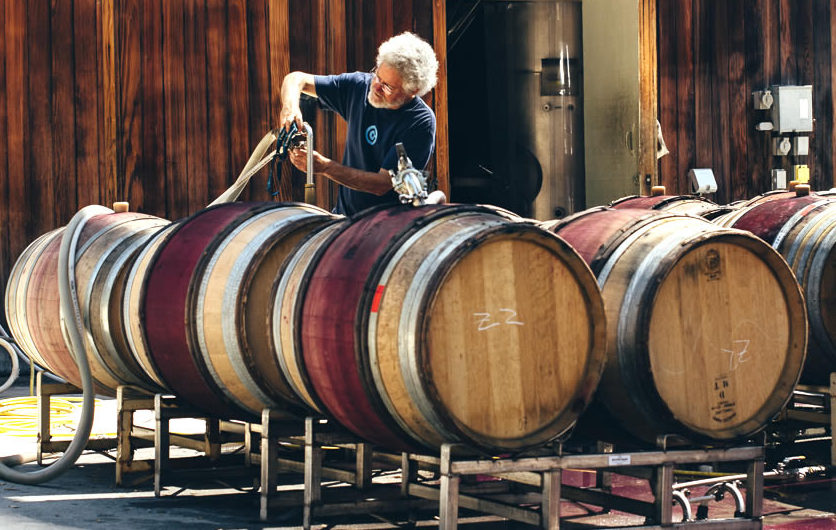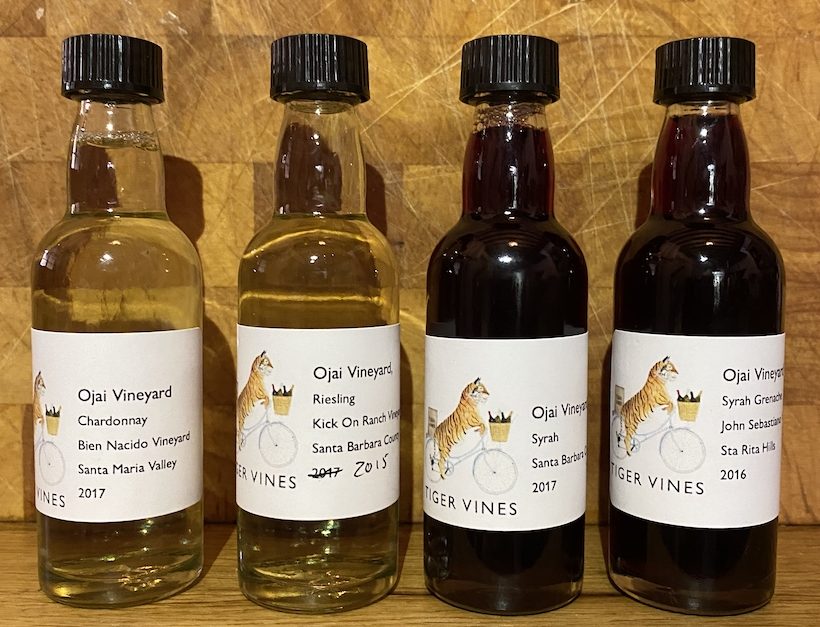
Ojai: the Rhône meets Burgundy in Santa Barbara
As sommeliers remain locked down, yearning to be back behind a bottle, the challenge of making the wines to stock their cellars continues, seemingly unabated. It is against this bizarre, unprecedented backdrop that the California Wine Institute has opted to seize the moment, to support importers, educate buyers and – most importantly – to keep its brands front of mind for the moment those doors are thrown open once again.
So began the ‘Sommelier Sessions’, a series of weekly workshops focused at the sommelier community, with key importers incentivised to offer a one hour masterclass with a winemaker, complemented by sample packs for selected buyers to taste along at home.
For the launch edition, Santa Barbara legend Adam Tolmach, who has done more than most to put his region on the world map. Before Covid 19 struck, Tolmach was due to be in London this month for an inaugural UK market visit supporting his importer, Tiger Vines. Instead, he and his assistant winemaker Fabien Castel zoomed at us, live from the front of their rustic-chic wooden winery.

A graduate of UC Davis, after a stint “making next to nothing selling roadside fruit” and “a transformative experience” working for the Duc de Magenta in Burgundy, Tolmach went on to co-create Au Bon Climat with Jim Clendenen. It was an overnight success, but after nine years the two men “got tired of each other”, surprising many observers by going their separate ways. While Clendenen went on to conquer the world, Tolmach turned his attention to the Ojai Vineyard (pronounced ‘oh hi’) in Ventura County, with a desire to “keep it small and grow as a craftsman”.
Inspired by Burgundy, Tolmach has “really gone against the grain, rediscovering the beauty of small, which is so not American”, says Castel, who has been at Ojai for almost 20 years and delivers a mix of laid-back Californian grammar with a not-very-subtle French accent – his own beguiling blend.
America’s ill-fated experiment with Prohibition ended in 1933, but it cast a very long shadow, to the extent that viticulture was still finding its feet when Tolmach began his career in the late 1970s. “It was what used to be called California sprawl, basically vines planted very far apart in rows to accommodate large tractors, just letting the vine grow kind of wild … the product of which is variable ripeness” he says, “in our area, it was the 90’s before anyone even thought about vertical trellising”.
… and that’s what Parker noticed.
Perhaps surprisingly for such a small player, Tolmach works with contract growers for virtually all Ojai’s grapes, paying a premium to wield influence over the viticulture, buying by plot rather than by weight. “He understood early on that the ability to gain as much control as possible was key, especially with the yields”, says Castel, “and that’s what Parker noticed”.
Robert Parker’s sweeping influence on the wine world is well documented, but his predilections were always more nuanced than most assumed; Tolmach’s wines are a case in point, with the focus on freshness, a sense of balance and, crucially, alcohol levels well below the norm.
As a region, Santa Barbara makes the perfect fit for Tolmach’s love of cooler climate sites. With its transverse valleys (running east to west, rather than north to south), the Pacific breezes are funnelled in, bringing what he calls “shockingly cooler” temperatures, resulting in fresher acidity. Harvest decisions are finely poised, with Tolmach opting to pick earlier, at around 21.5-22 Brix (the US measure of concentrated grape sugars).
Although not yet officially certified, Tolmach has embraced organic methods, paying his growers to keep the plots allocated to Ojai free of fertilisers and pesticides: “California is a very benign climate so it seems senseless to use poisons on the vines. It is perfectly possible not to, it just costs more money”.

Tolmach describes Syrah, sometimes a hard sell in the United States, as his “greatest obsession”. Having become fixated with reducing the use of sulphur, cutting levels by 60 percent across the board, his latest project is a ‘Sans Soufre Ajoute’ Syrah/Grenache from the John Sebastiano Vineyard “a technical challenge we have continued to make just for the love of drinking it”.
Tolmach’s determination to keep it small means production is limited to a maximum of around 8 thousand cases per year, albeit across a whopping 28 different wines, whose varieties make for a slightly counter-intuitive wine atlas for those unfamiliar with California: sun-loving Rhône grapes including Syrah and Grenache sit alongside cooler customers like Riesling and Burgundy’s Chardonnay and Pinot Noir.
Perhaps it shouldn’t work, just 100 miles from the mean streets of downtown LA, but it does, thanks to that combination of Santa Barbara’s incredible climate and Tolmach’s dogged determination, daring to be different.
Tasting the wines
Ojai Vineyard, Syrah, Santa Barbara County, 2017 (RRP £33), Tolmach takes his cues from the Northern Rhône, which is obvious, albeit with just a touch more ripeness. Violet notes on the nose, leading into perfumed blueberry and blackberry, there’s delicacy, freshness and fine tannins around a subtle earthy core.
Ojai Vineyard, Chardonnay, Bien Nacido, Santa Maria Valley 2017 (RRP £35), with prized grapes from one of Santa Barbara County’s top plots, a complex nose of peach skin, citrus blossom and honeycomb, with ripe stone fruit character and a chalky note on the palate. Perfectly balanced, the oak is neutral, so it’s all about texture and fruit. Delicious.
Ojai Vineyard, Riesling, Kick on Ranch, Santa Barbara County 2015 (RRP £32), from a site that’s “unbelievably good for Riesling because it ripens so slowly”, according to Tolmach. There’s lime cordial, tangy green apple and wet granite, the texture is rich and powerful, yet elegant, the finish sublimely salty.
*Note: The no-added-sulpher John Sebastiano Syrah/Grenache was also in the sample pack, but curses be upon UPS for the delay in delivery that meant it was sadly past its best.
The wines are sold by Tiger Vines – now selling directly to the public as well as restaurants – and are available in a California mixed case format, which makes them a bit cheaper than the recommended retail prices indicated above. The case also includes wines from Storm, which you can read about here.
This piece originally appeared in The Buyer.
